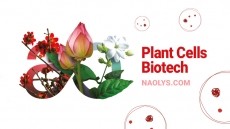Biologi’s highlights new research claiming natural vitamin C is better than ascorbic acid
![Biologi study claims to prove that its Kakadu plum-derived vitamin C is superior to ascorbic acid. [Biologi]](/var/wrbm_gb_food_pharma/storage/images/_aliases/wrbm_large/publications/cosmetics/cosmeticsdesign-asia.com/article/2022/05/19/biologi-s-highlights-new-research-claiming-natural-vitamin-c-is-better-than-ascorbic-acid/15390670-1-eng-GB/Biologi-s-highlights-new-research-claiming-natural-vitamin-C-is-better-than-ascorbic-acid.jpg)
The company, founded by cosmetic chemist Ross Macdougald, recently relaunched its previously the Bk Eye Rejuvenation Serum to the Bk Vitamin C Face and Eye Serum.
Despite the relaunch, the formulation was not changed in any way and still remains a single plant extract of Australian Kakadu Plum as well as 0.2% sodium benzoate. It is free of any water in the formulation as well.
While the formulation may be simple, the serum is touted as a multifunctional product.
“Being such a multitasking serum, you don’t need much more to get glowing skin. It targets a myriad of skin concerns, ranging from ageing and sun damage, fine lines and wrinkles, dark circles around the eyes, early ageing spots and accelerated pigmentation,” said managing Director Lucy Macdougald told CosmeticsDesign-Asia
Macdougald told CosmeticsDesign-Asia that the rebrand aimed to shine a spotlight on its Kakadu plum-derived vitamin C.
“The idea for the rebrand of this product came about because we now know so much more about natural Vitamin C. We felt it was really important to highlight the fact that our Biologi’s Bk Vitamin C Serum contains natural vitamin C.”
The rebrand follows the conclusion of a study jointly conducted with the Centre for Accelerator Science (ANSTO) that compared its Kakadu plum-derived vitamin C with synthetic L-Ascorbic Acid.
“This independent scientific research lifts the lid on a widely held assumption in the skincare industry and distinguishes the difference between natural vitamin C and ascorbic acid,” said Macdougald.
The research was funded by the BioVerse Group, which owns Biologi. It compared vitamin C derived from C3 type plants – such as Kakadu Plum, oranges, and blueberries – to ascorbic acid derived from C4 type plants – such as maize and sugar cane.
The test concluded that Kakadu plum-derived vitamin C was better than synthetic L-Ascorbic Acid.
Their reasoning was that the different carbon molecules in these two compounds (C3 and C4), led to different structures, which they claim to result in different effects on the skin.
The study did not consider crassulacean acid metabolism (CAM) plants that are found primarily in arid areas, such as cacti, agave, and pineapple, as they deemed them “less common” and with minimal impact on their research.
“In conclusion, we now have the means to determine if the vitamin C you are consuming or applying to your skin is from a natural plant source or synthetically produced which will now allow the consumer to choose if they want natural or synthetic in their body or on their skin,” said Dr Vladimir Levchenko, principal Research Scientist of NST Centre Accelerator Science, in a statement.
![SUGAR Cosmetics has secured U$50m in funding, which will bring it closer to its goal of going public. [SUGAR Cosmetics]](/var/wrbm_gb_food_pharma/storage/images/_aliases/wrbm_medium/publications/cosmetics/cosmeticsdesign-asia.com/article/2022/06/15/sugar-cosmetics-edges-closer-to-ambition-of-going-public-with-latest-mega-funding/15518219-1-eng-GB/SUGAR-Cosmetics-edges-closer-to-ambition-of-going-public-with-latest-mega-funding.jpg)
![EZZ Life Science Holdings has entered the beauty and personal care space with a new hair care range. [EZZ Life Science]](/var/wrbm_gb_food_pharma/storage/images/_aliases/wrbm_medium/publications/cosmetics/cosmeticsdesign-asia.com/headlines/business-financial/ezz-life-eyes-opportunity-to-grow-business-two-fold-on-the-back-of-new-beauty-business/15433402-1-eng-GB/EZZ-Life-eyes-opportunity-to-grow-business-two-fold-on-the-back-of-new-beauty-business.png)
![Quintis has confirmed in vitro findings that sandalwood oil is more protective than vitamin E against blue light damage. [Quintis]](/var/wrbm_gb_food_pharma/storage/images/_aliases/wrbm_medium/publications/cosmetics/cosmeticsdesign-asia.com/article/2022/05/05/sandalwood-s-blue-light-findings-aid-quintis-european-expansion-drive/15386353-1-eng-GB/Sandalwood-s-blue-light-findings-aid-Quintis-European-expansion-drive.jpg)





![[Getty Images]](/var/wrbm_gb_food_pharma/storage/images/_aliases/wrbm_tiny/publications/cosmetics/cosmeticsdesign-asia.com/china/china-focus-latest-developments-in-china-s-booming-beauty-market22/17370102-1-eng-GB/China-focus-Latest-developments-in-China-s-booming-beauty-market.jpg)
![YSL's LoveShine launch has sparked a demand surge in Japan. [YSL]](/var/wrbm_gb_food_pharma/storage/images/_aliases/wrbm_tiny/publications/cosmetics/cosmeticsdesign-asia.com/article/2024/04/24/ysl-loveshine-launch-propels-lip-gloss-sales-to-record-highs-in-japan-since-2020/17372064-1-eng-GB/YSL-LoveShine-launch-propels-lip-gloss-sales-to-record-highs-in-Japan-since-2020.jpg)
![There is significant scope for innovation and new launches in the hair repair sector, especially in soaring markets such as China. [Getty Images]](/var/wrbm_gb_food_pharma/storage/images/_aliases/wrbm_tiny/publications/cosmetics/cosmeticsdesign-asia.com/article/2024/04/24/croda-zeroes-in-on-hair-repair-solutions-as-damage-hair-concerns-surge-in-markets-like-china/17362731-1-eng-GB/Croda-zeroes-in-on-hair-repair-solutions-as-damage-hair-concerns-surge-in-markets-like-China.jpg)



![Lubrizol has extended its partnership with C-beauty major PROYA. [PROYA]](/var/wrbm_gb_food_pharma/storage/images/_aliases/wrbm_tiny/publications/cosmetics/cosmeticsdesign-asia.com/headlines/brand-innovation/lubrizol-bullish-on-potential-of-c-beauty-growth-potential/17362515-1-eng-GB/Lubrizol-bullish-on-potential-of-C-beauty-growth-potential.jpg)



